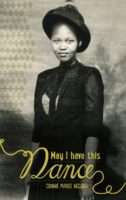With being a father comes the responsibility of the physical, emotional and spiritual well-being of your children. It is the father’s duty to see to it that there is a home for his family. It is he who provides the necessary essentials – food, clothing, access to education and guidance. My husband, Bra Sol, was exemplary in this respect. It pains me to see so many young mothers queuing up for grant money to feed their children. I always ask myself, “Where are the fathers?” It is the father’s duty to support the mother, provide for the children and help raise them.
The preparation for manhood should begin at an early age. A boy should know that his chores will be a little heavier than those given to a girl. In traditional society, it was expected of boys to chop wood, herd cattle and do the garden while girls prepared food and tended the fire. Young men grew up knowing that they were going to be men. This was not to teach men to be chauvinistic; it was to teach them to appreciate their role.
Today’s society emphasises equality, but does not say much about the different expectations of each sex. I believe this contributes to society’s problems. My Mamkhulu taught us that, while we were equal and she loved us all, she had different expectations of the boys and the girls in her house. This is the psychological stance we need to develop in our young men: that while men and women are equal, we have different roles to play in creating a society of equality and justice.
It is unacceptable for a young man, for a husband, to raise his hand to his sister or wife. Today we see a lot of abuse. What is missing in the emotional code of men who do this? Could it be that they are lacking the sense that they are society’s protectors?
***
Tell us: What are your thoughts on Connie Ngcaba’s on being a man?


